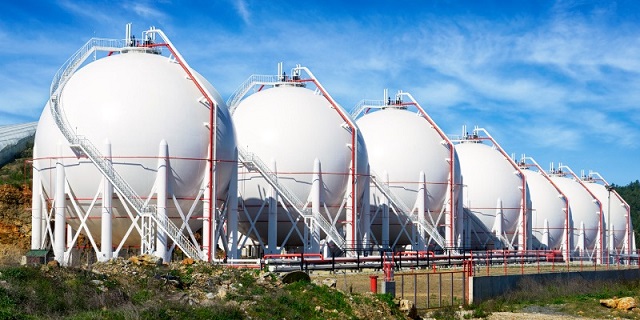Uncategorized
Prime Minister May says she’ll step down if Brexit deal OK’d

LONDON — British Prime Minister Theresa May told Conservative lawmakers Wednesday that she will step down once the U.K.’s exit from the European Union is delivered — a dramatic concession meant to bring enough of her colleagues on board to push her deal over the line.
May told a party meeting of legislators that she was aware of a desire for a new approach – and new leadership – in the second phase of the Brexit negotiations.
“I am prepared to leave this job earlier than I intended in order to do what is right for our country and our party,” she said, according to a transcript released by her office. “I ask everyone in this room to back the deal so we can complete our historic duty – to deliver on the decision of the British people and leave the European Union with a smooth and orderly exit.”
May has been under mounting pressure from pro-Brexit members of her Conservative Party to quit. Several have said they would support the withdrawal deal if another leader was chosen to lead the next stage of negotiations, which will determine Britain’s future relations with the EU.
In a packed meeting described by participants as “
Anti-EU lawmaker Jacob Rees-Mogg, who has clashed with May throughout the Brexit process, said she had been “very clear” that if Britain leaves the EU on May 22, she will quit soon after.
He said the prime minister had been “very dignified.”
“She out her case well, and reiterated that she had done her duty,” he said.
May’s announcement came as British lawmakers debated multiple options for leaving the EU as they sought to bring some clarity to the tortured Brexit process and stop the country tumbling out of the bloc within weeks with no exit plan in place.
In the wake of two overwhelming defeats for May’s withdrawal agreement with the EU, the House of Commons seized control of the parliamentary timetable for debate and votes on a range of Brexit alternatives.
House of Commons Speaker John Bercow selected eight widely differing options for votes from a list of 16 submitted by lawmakers. They include calls to leave the EU without a deal, to stay in the EU’s customs union and single market, to put any EU divorce deal to a public referendum, and to cancel Brexit if the prospect of a no-deal departure gets close.
Later in the day, lawmakers will vote on all of the options they could accept. The plan is for the most popular ideas to move to a second vote Monday to find one option that can command a majority. Parliament would then instruct the government to negotiate it with the EU.
May has said she will consider the outcome of the votes, though she has refused to be bound by the result.
The government condemned lawmakers’ move to seize control because it upends the usual practice in which the government sets the timetable for debate and votes in Parliament.
But Conservative lawmaker Oliver Letwin, one of those behind Wednesday’s votes, said “this is not an insurgency.”
“This process has come about as a result of the increasing concern that many of us have had across the House of Commons that we were heading not towards an approval of the prime minister’s deal, but alas towards a no-deal exit,” he said.
Almost three years after Britons voted to leave the EU, the date and terms of its departure are up in the air. Last week, the EU granted Britain a delay to the scheduled March 29 exit date, saying that if Parliament approves the proposed divorce deal this week, the U.K. will leave the EU on May 22. If not, the government has until April 12 to tell the 27 remaining EU countries what it plans to do — leave without a deal, cancel Brexit or propose a radically new path.
May, meanwhile, still hopes to bring the divorce deal that the government struck with the EU back for another vote in the House of Commons — if she can win over enough opponents to ensure passage. Lawmakers rejected the deal by 230 votes in January and by 149 votes earlier this month, primarily because of concerns about the Northern Ireland border.
Brexit Secretary Stephen Barclay said he had introduced a motion to have Parliament meet on Friday if needed so a vote could be held. But it remained unclear whether it would go ahead, since Bercow said Wednesday he would not accept another vote on the twice-rejected deal unless substantial changes were made.
House of Commons leader Andrea Leadsom told the BBC there was a “real possibility” the unpopular agreement would be brought back for a vote on Thursday or Friday.
Tony Travers, a professor of government at the London School of Economics, said the parliamentary votes could boost support for May’s deal by convincing pro-Brexit lawmakers that a withdrawal might be delayed or abandoned.
Rees-Mogg, who has sought a complete break from the bloc, said May’s deal is still a bad one, but “the risk is, if I don’t back it, we don’t leave the EU at all.”
“I think we have got to the point where legally leaving is better than not leaving at all,” he told the BBC. “Half a loaf is better than no bread.”
But Rees-Mogg said he would not back the deal unless Northern Ireland’s Democratic Unionist Party decided to vote for it. The DUP, which has 10 seats in the House of Commons, said Tuesday it still wasn’t prepared to support the “toxic” deal.
Wednesday’s votes in Parliament could potentially produce conflicting and inconclusive results. But they could push Britain in the direction of a softer Brexit that keeps Britain closely tied economically to the EU.
That would probably require the U.K. to seek a longer delay, although that would mean that the country would have to take part in May 23-26 European Parliament elections.
Many EU officials are keen to avoid the messy participation of a departing member state.
But the chief of the European Council told European lawmakers that the EU should let Britain take part if the country indicated it planned to change course on Brexit.
Donald Tusk said the bloc could not “betray” the millions of Britons who want to stay in the EU.
“They may feel they are not sufficiently represented by the U.K. Parliament but they must feel that are represented by you in this chamber. Because they are Europeans,” Tusk said.
____
Gregory Katz and Tobie Mathew in London, and Raf Casert in Strasbourg, France, contributed.
___
Follow AP’s full coverage of Brexit at: https://www.apnews.com/Brexit
Jill Lawless And Danica Kirka, The Associated Press
Uncategorized
RCMP recruitment failure has Alberta advocacy group calling for Provincial Police Service

News release from Free Alberta Strategy (A Strong And Sovereign Alberta Within Canada)
“Make no mistake, we are paying for these services that we aren’t receiving. Alberta’s taxpayers are paying tens of millions of dollars for nearly 400 vacant RCMP officer positions – for boots that are not on the ground.”
A recent report from the Royal Canadian Mounted Police (RCMP)’s independent Management Advisory Board had findings that are nothing short of alarming:
“Federal policing has now arrived at a critical juncture of its sustainability, which present risks for the national security and safety of Canada, its people, and its interests,” says the report.
After over a year of diligent study, the Board has been tirelessly firing off flares, signalling to all who will listen: the very foundation of our national public safety apparatus may be at risk of faltering.
This is doubly problematic because, as you well know, the RCMP is also responsible for boots-on-the-ground policing in large parts of the country, including many rural and remote areas – including in Alberta.
Rural crime has been a longstanding issue in Alberta, and social disorder continues to make headlines nightly.
Alberta Minister of Public Safety, Mike Ellis, took to social media platform X (formerly known as Twitter) to express his opinion:
“The independent report finds the RCMP has struggled in recent years to recruit and retain regular members, a problem that’s particularly acute in federal policing. This is not about the hard-working men and women on the frontline: they are doing everything they can. The reality is the RCMP do not have enough officers to police communities in Canada effectively.”
Ellis has been ahead of this story for months now.
In March, Ellis stated that:
“… on average, Alberta has an RCMP officer vacancy rate of 20 per cent. This means that Alberta is only being served by 1,522 of the 1,911 RCMP officers that the federal government has authorized for Alberta.”
“Make no mistake, we are paying for these services that we aren’t receiving. Alberta’s taxpayers are paying tens of millions of dollars for nearly 400 vacant RCMP officer positions – for boots that are not on the ground.”
The consequences of this capacity crisis are far-reaching.
Not only does it jeopardize the safety of Albertans, but it also undermines the credibility of Canada’s federal police force on the international stage.
With limited resources and personnel, the RCMP’s ability to address pressing national and global security concerns is severely compromised.
The Management Advisory Board, created in 2019 by the federal government to provide external advice to the RCMP commissioner, set up a task force in the fall of 2022 to study the federal policing program.
Overall, the report says budget and personnel shortfalls have left the RCMP “operationally limited,” restricting the number of cases it can take on annually.
Here are some more highlights from the report:
“Canada and its people have already begun to see the repercussions of the federal policing program being stretched thin.”
“Federal policing’s overall eroding capacity may have implications for the credibility of Canada’s federal police force and its investigations on the international stage.”
“Ultimately, this may influence Canada’s overall approach and standing in international politics, including its ability to advance global priorities.”
Clearly, we cannot afford to wait any longer.
Municipalities can ease the burden on our national security services by establishing municipal policing.
Several cities in Alberta already have their own police authorities, and the provincial government is providing funding for others interested in exploring this option.
Grande Prairie is already in the process of establishing their own municipal police service.
No word on how many other municipalities have taken the government up on their offer.
Unfortunately, President of Alberta Municipalities Tyler Gandam (also Mayor of Wetaskiwin) is featured prominently on the National Police Federation’s “Keep Alberta RCMP” website.
Interestingly, the Keep Alberta RCMP website doesn’t mention the fact that the advisory board even exists.
It doesn’t mention the report.
The notion that our federal policing infrastructure teeters on the brink of instability while Gandam appears to be asleep at the wheel, is deeply disconcerting.
The safety and security of Albertans must remain our top priority.
We cannot afford to wait any longer.
The time has come for the province to take swift and decisive measures to bolster policing capabilities in Alberta.
It’s time for Alberta to seriously consider the establishment of an Alberta Provincial Police Service.
It has been one of the core tenets of the Free Alberta Strategy.
If you agree, please reach out to your municipality and ask them to take steps to protect your community.
Together, we can keep Alberta safe.
Regards,
The Free Alberta Strategy Team
P.S. We’re hoping you’ll consider contributing to our cause. Your generous donation helps us make a positive impact in our community. No need to worry about any hold-ups or threats here. We’re just passionate about making a difference, and your support goes a long way in helping us achieve our goals.
Uncategorized
Making Alberta a geothermal energy leader

Eavor announces it’s the #1 geothermal energy startup company in the world – January 2024
Alberta is creating Canada’s first geothermal test site to advance drilling innovation, reduce emissions and create jobs.
Geothermal energy uses naturally occurring heat within the earth to heat water and buildings and generate power, with few emissions or environmental impacts. Alberta has vast pockets of heat below ground, making the province Canada’s geothermal leader, but testing and developing new technologies can be a barrier for many companies. Unlike the United States, Japan and other countries, Canada does not currently have an open-access test site to help spur innovation.
Alberta is taking the first steps to create a new Alberta Drilling Accelerator. This groundbreaking facility would be the first of its kind in Canada, establishing Alberta as a global hub for geothermal technology. This will drive new innovations in geothermal and other clean energy projects that can reduce emissions and power communities around the world.
To kick-start the project, the Alberta government is investing $750,000 to conduct a feasibility study led by Calgary-based Eavor Technologies and other stakeholders. The study is the first step in assessing the proposed facility. It will include identifying a site, business planning, research on the governance model, an economic impact analysis and stakeholder engagement that will lay the groundwork for the initial planning stages of the project.
“Alberta has been a global energy leader for more than a century, renowned for our skilled workforce, innovation and one of the largest oil and gas reserves on the planet. The proposed Alberta Drilling Accelerator presents enormous potential to help our province lead the next wave of energy projects here at home and around the world that reduce emissions, create jobs and enhance energy security.”
The Alberta Drilling Accelerator would help companies test out and develop new geothermal drilling techniques or technologies to reduce emissions and drive growth across the clean energy sector. It would be an open-access, technology-agnostic drilling test facility capable of drilling in challenging environments, including deep depths, high temperatures and different rock types.
The accelerator also would help speed up the development of carbon capture, utilization and storage; helium; critical minerals; and other clean technologies and commodities that rely on Alberta’s drilling sector. All of this helps attract investment and bring new technologies to scale in Canada.
“With cumulative geothermal investment poised to reach $1 trillion by 2050, a geothermal arms race is very much underway to commercialize novel drilling techniques that accelerate geothermal development – exhibited by testing facilities in the United States, China and Iceland. As Canada’s first geothermal test bed, the Alberta Drilling Accelerator will help bring geothermal technologies to scale, supporting companies like Eavor. We commend the Government of Alberta for this bold initiative.”
“We are proud to witness Eavor, a CDL-Rockies alumni company, create new opportunities for innovators like themselves to advance the adoption of energy transition technologies like geothermal. The Alberta Drilling Accelerator will further solidify Alberta’s position as a leader in the global sustainable energy landscape.”
If the feasibility study shows the facility is economically and environmentally viable, and if the project is approved by the Alberta government, the facility will start taking shape at the selected site and drilling could start as early as 2025.
“Canada is home to the most advanced drilling technology in the world. Not only do our members support the responsible development of oil and gas, but we are integral in the extraction of new energy resources like geothermal and critical minerals. Our workers are at the epicentre of Canada’s energy transformation. Our people, technology and processes are leading the way towards a more diverse energy future. The Alberta Drilling Accelerator is a government-enabled policy approach to expand Alberta’s drilling capacity and reach its full potential as the world’s most diverse and technologically advanced producer and exporter of sustainable energy and critical minerals.”
“The Alberta Drilling Accelerator is a testament to Alberta’s innovative and entrepreneurial spirit. Leveraging our oil and gas sector expertise, Alberta is poised to become the global leader in developing new geothermal technologies that will play an integral role in reducing emissions while supporting job creation.”
Quick facts
- The Canadian Association of Energy Contractors estimates that one active drilling rig, whether drilling for natural gas or geothermal, creates approximately 220 direct and indirect jobs and
$1 million in tax revenue. - In 2019, Eavor received $2 million in provincial funding through Emissions Reduction Alberta and Alberta Innovates for the world’s first closed-loop geothermal system.
Related information
-

 espionage1 day ago
espionage1 day agoThe Scientists Who Came in From the Cold: Canada’s National Microbiology Laboratory Scandal, Part I
-

 Energy1 day ago
Energy1 day agoTech giants’ self-made AI energy crisis
-
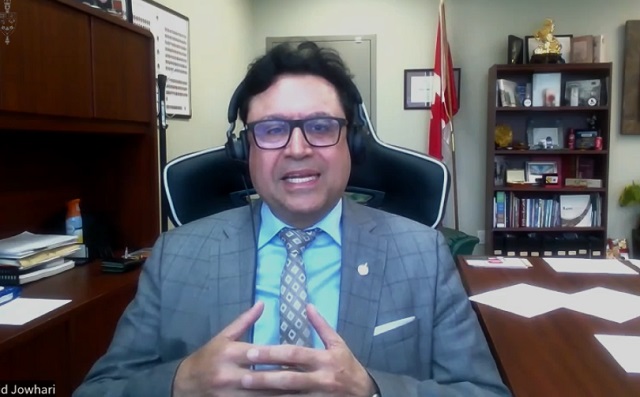
 Addictions2 days ago
Addictions2 days agoLiberals shut down motion to disclose pharma payments for Trudeau’s ‘safe supply’ drug program
-

 Frontier Centre for Public Policy1 day ago
Frontier Centre for Public Policy1 day agoThe PM as Leaf’s coach
-
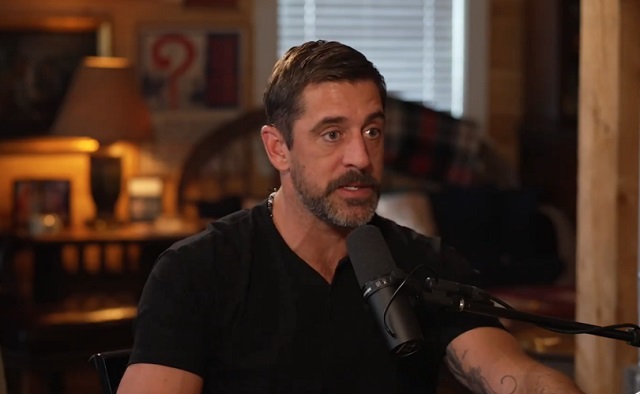
 COVID-1917 hours ago
COVID-1917 hours agoTucker Carlson and NFL star Aaron Rodgers discuss Bill Gates, COVID-19, US Deep State
-
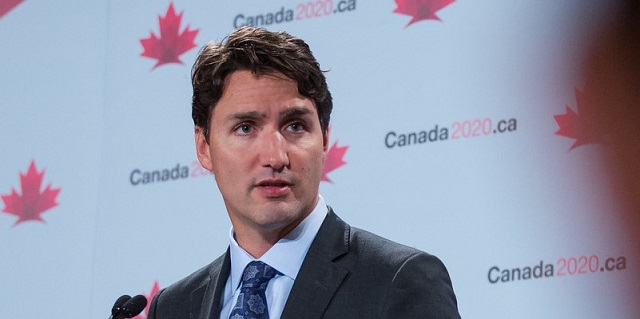
 Economy17 hours ago
Economy17 hours agoPrime minister’s misleading capital gains video misses the point
-
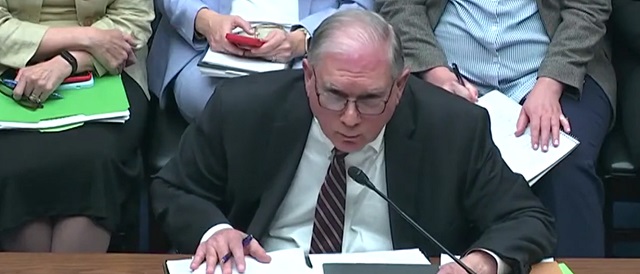
 COVID-197 hours ago
COVID-197 hours agoTop Fauci Aide Allegedly Learned To Make ‘Smoking Gun’ Emails ‘Disappear,’ Testimony Reveals
-

 COVID-191 hour ago
COVID-191 hour agoThe Vials and the Damage Done: Canada’s National Microbiology Laboratory Scandal, Part II




